#German cultural heritage
Text
✨💙Die Pommersche Sappho 💙✨
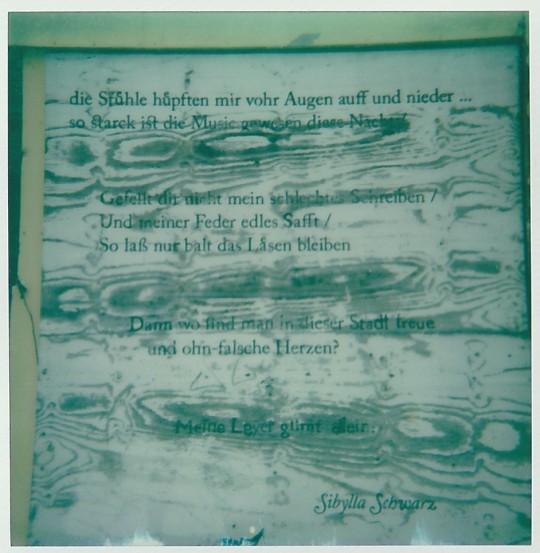
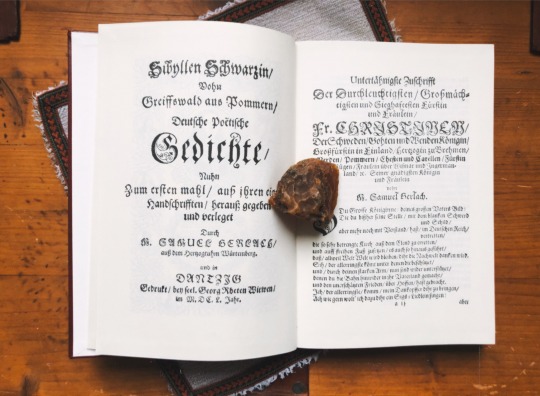

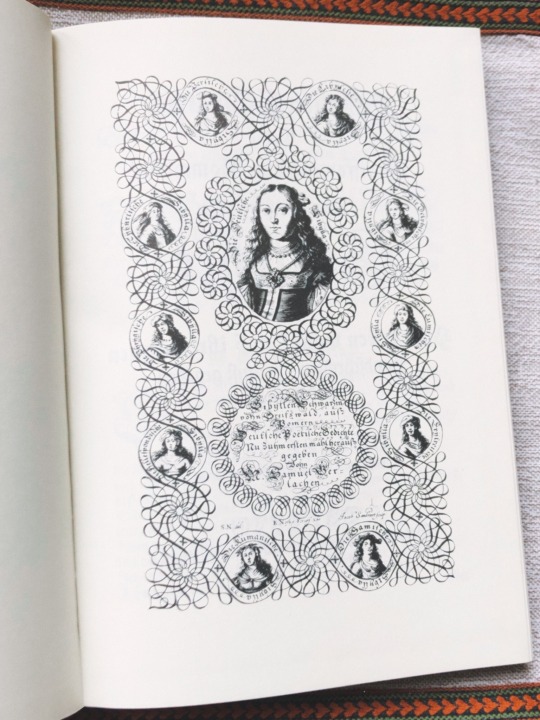
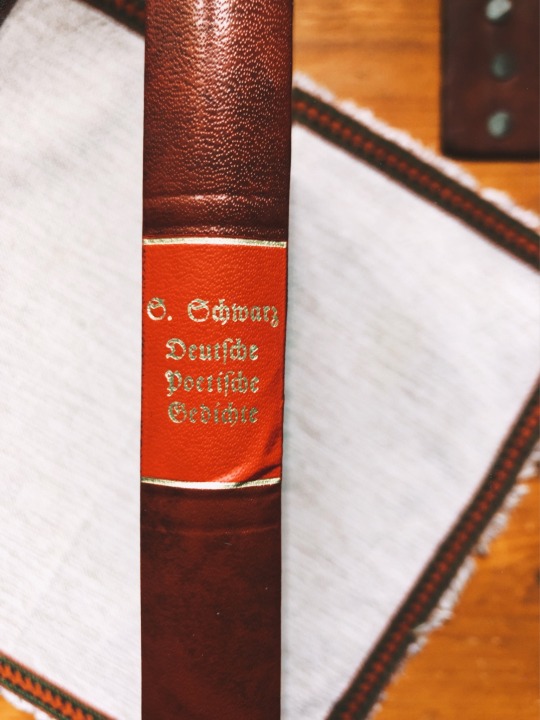
Presenting the Pomerian Sappho in pictures. Sibylla Schwarz, German poet of Baroque era, died at young age. Posthumously immortalized by her teacher Samuel Gerlach under the title Deutsche Poëtische Gedichte in 1650.
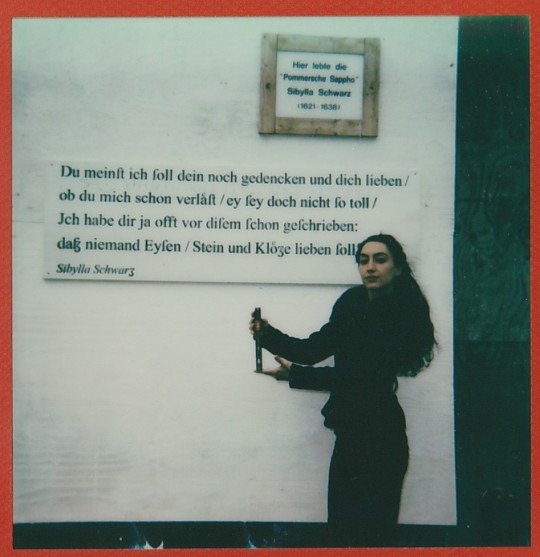
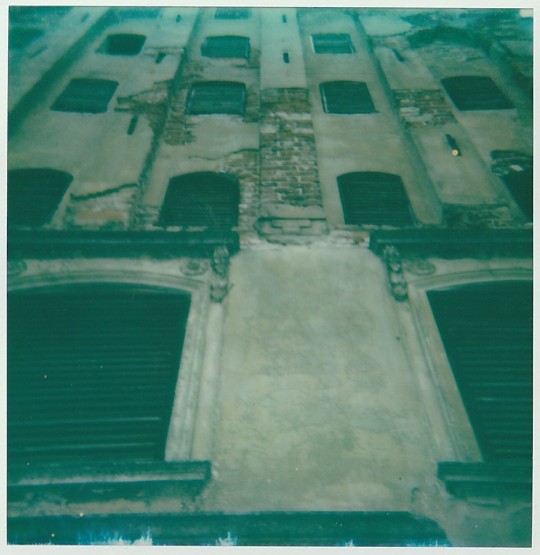

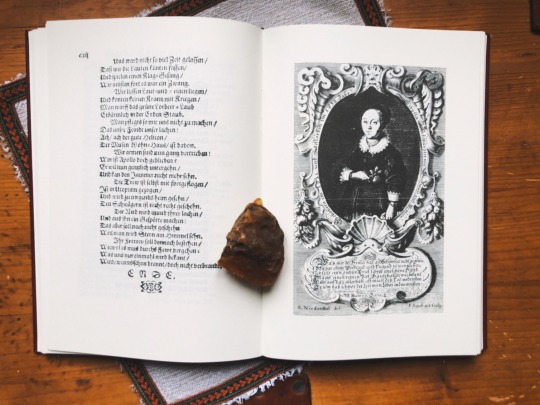

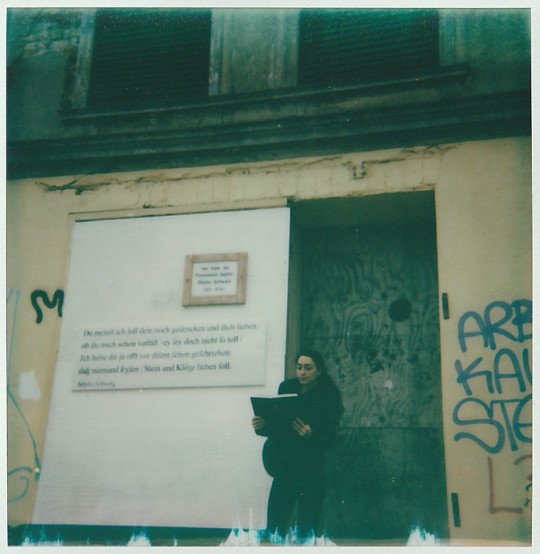
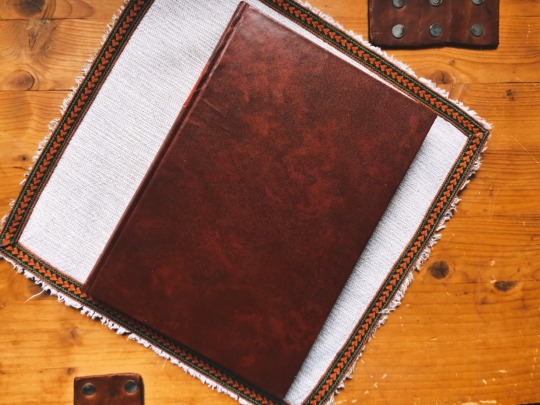
My edition is a facsimile and the depicted 'house' is the birthplace of Sibylla Schwarz, an architectonical victim of real estate speculation, a sad ruin. Give me the permission and I will renovate the whole building!
#Sibylla Schwarz#vanitas#baroque#baroque poetry#female poet#poetry#history of literature#Pomerian Sappho#Pommersche Sappho#lyric of baroque#literature#book#facsimile#1650#real_estate_speculation_is_crime#book cover#bookworm#German cultural heritage#polaroid
5 notes
·
View notes
Photo


Jewish Wedding Ring. First half 14th century
German
#germany#culture#medieval#wedding rings#heritage#ashkenazi#jewish#jewish culture#the met#gold#german history#peoples#diversity#old world#14th century
2K notes
·
View notes
Text
Are Spanish-speakers unique in this regard or is everyone making a whole stink outta nothing bc I don't think it is that outlandish to write Medic tf2, a person whose second language is English and first language is German, as replacing English nouns with German nouns while saying a sentence in English. I am Hispanic. I know a lot of people who speak English well, but their first language is still Spanish. My first language is English and I still substitute English nouns with Spanish nouns when I can't remember the word for it in English or learned the Spanish word first (words like bacalao, aguacate, cucubano). People often criticize characters who speak Spanglish as being "unrealistic, no real Latino person talks like that" even though some literally do - it feels like people are criticizing Latino characters for being too Latino and not assimilated enough. Are people... critiquing other people for making Medic tf2 too German? Your Medic isn't assimilated enough. Canceled
#again fuck if i know i don't speak german But i don't think it's crazy to think that a guy whose second language is english#maybe doesn't remember every word in english all the time#especially culture-specific things? like platanos or bacalao which i only encounter in puerto rican settings#open mick night#this one's REALLL personal oopsie. happy hispanic heritage month#tf2#team fortress 2#medic#medic tf2#tf2 medic
249 notes
·
View notes
Photo

Live with your century, but do not be its creature.
- Friedrich Schiller
#schiller#friedrich schiller#quote#german#dirndl#femme#beauty#tradition#custom#countryside#rural living#heritage#culture
138 notes
·
View notes
Text
I’m not into any Gen.shin characters yet but I do kinda want to make a s/i for it. The problem is idk where she’d be from. Where’s the fantasy Korea or Italy
#my posts#i may have to go with mondstadt since i think i have#some german heritage from my dad’s side but please#i have several cultures. why can’t one of the two i feel a connection to have a region
9 notes
·
View notes
Text
Of the Image and the Word: Text Illumination and Devotional Imagery in Pennsylvania German Material Texts from The Pennsylvania German Cultural Heritage Center
#Of the Image and the Word: Text Illumination and Devotional Imagery in Pennsylvania German Material Texts#The Pennsylvania German Cultural Heritage Center#Religion & Magic#Pennsylvania Braucherei#Folk Art#Bookshelf#Tumblr Staff Has Ruined Links Now And I Hate Them For It
1 note
·
View note
Text
So turns out the solution to me feeling generally dissatisfied with everything I was looking at was to put on some music and hang out in fleshspace for a bit to make some pretzel dough for Mama.
#Actually my first time in a while since I've done anything for mother's day.#Last time was a couple years ago helping my dad make halo-halo (a Filipino dessert (highly recommend)) for grandma because heritage.#Unfortunately a bit harder to make cultural food when the recipient's ancestry is “white people everyone hates” ie British and German.#Beer pretzels were the thing I came up with that I'm pretty sure she'll like.#Besides breads are fun to make.#Also not much gets better than fresh flavorful bread.#We'll see how she likes them tomorrow.
1 note
·
View note
Text
How do I have less Irish than at the start of the summer when I've been studying to some degree nearly every day and also reviewing
#ik ik that language learning is a journey etc#but i so desperately want to be conversational in irish#i care about that more than my french skills at this point and that really says something#i've brought it up before but i really feel such a deep sadness that i didn't grow up learning irish at school#like it's heritage and culture and history that i don't feel a connection to because of *gestures vaguely* everything#while i'm here i may as well vent a little more#my friend is learning irish again since she used to learn it at her old school#and i really wish i could chat to her about learning it but then Intense Fear Of Judgement enters the scene#it feels really weird that i'm hiding about learning irish but not about learning dutch or my past attempts at german/russian#it's a cultural thing i think cus while there's been a movement for protestants to learn irish that really isn't seen as the norm rn#especially since the most well known irish classes for protestants are in belfast and there's no irish classes in my small town full stop#i'm tired of being confused about my cultural identity and being scared of judgement for exploring it#yikes oversharing much#anyway#ellis exclaims
2 notes
·
View notes
Text



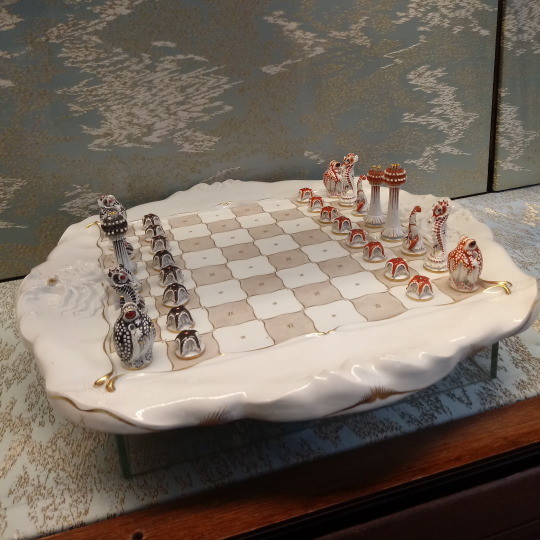
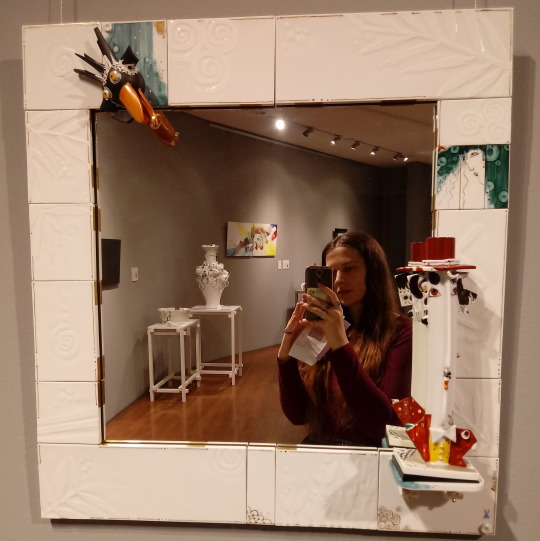

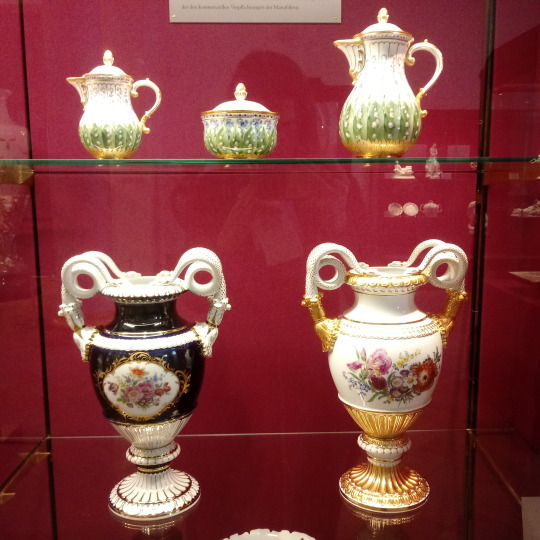
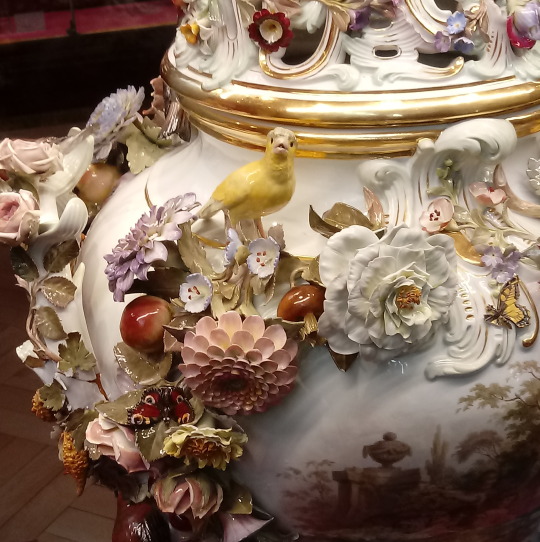

Dresden & Meissen Porcelain, DE
highlights part 2
0 notes
Text
youtube
Exploring 27 Random and Ridiculous Facts About Germany | Interesting facts about germany
Welcome, geography enthusiasts, to GeographyGuru99, your go-to channel for all things geographical! Today, we embark on an exciting journey to the fascinating land of Germany, known for its bratwurst, beer, and iconic Brandenburg Gate. In this captivating video, we've curated a list of 27 truly unique, random, and at times, utterly ridiculous facts about this European powerhouse. Get ready to be intrigued, amused, and perhaps even a little shocked as we uncover the hidden gems of Germany's culture, history, and quirks. Join us on this virtual adventure through Germany's diverse landscapes and vibrant cities, all while learning some mind-boggling facts that you won't find in your average travel guide.
#germany facts#highest point in germany#germany fun facts#german culture#information germany#german history#germany gdp#gutenberg bibl#interesting facts about germany#10 interesting facts about germany#facts about germany#top 10 germany facts#interesting facts#geography guru#geography#geography facts#German Heritage#Germany Travel#germany tanks problem in world war 2#germany interesting facts#facts channel in english#Youtube
0 notes
Text
“Eritis sicut deus scientes bonum et malum.”

Goethe, Wolfgang "Faust: The Second Part of the Tragedy", published originally in 1832 (year of Goethe's death), this wonderful edition was illustrated by painter, author, professor for art: Max Beckmann during his years of exile in Amsterdam 1943-1944.
143 pen drawings on Büttenpapier. Comissioned by publisher and friend Georg Hartmann, prior to that, he engaged Beckmann 1941 with lithographies for "Apocalypse". 1943 Hartmann suggested "Don Quijote" (favourite book of Beckmann) and "Faust" (Hartmann was a big adorer of Goethe and both where born in Frankfurt).


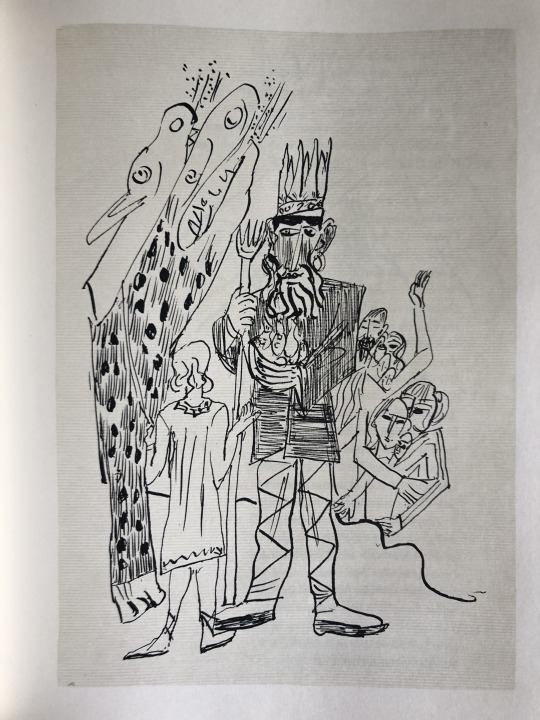

"Whoever aspiringly strives, we can redeem."
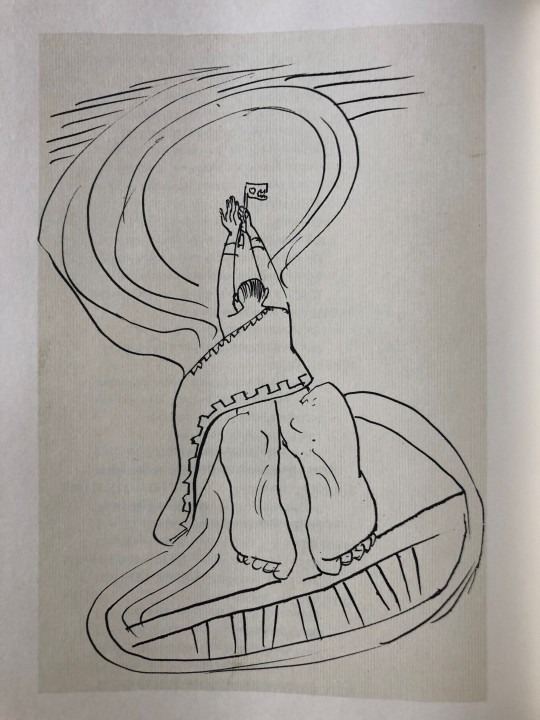
"This is the last word of wisdom: Only he deserves freedom as well as life, who has to conquer it daily."
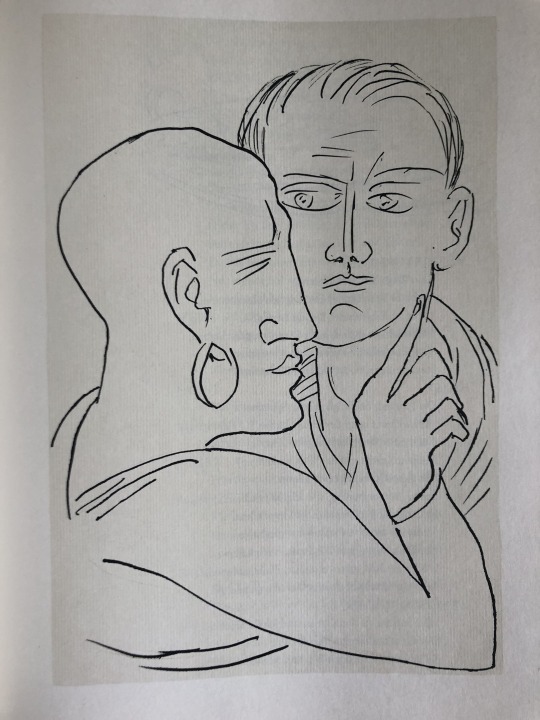
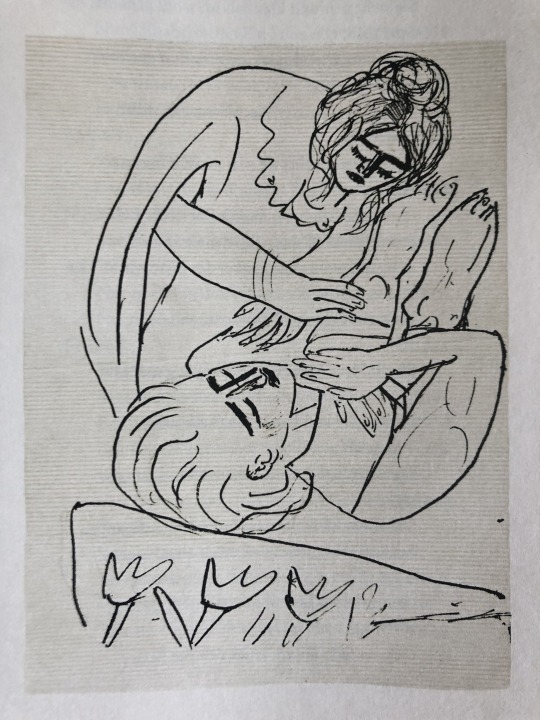
"The deed is all, not the glory."

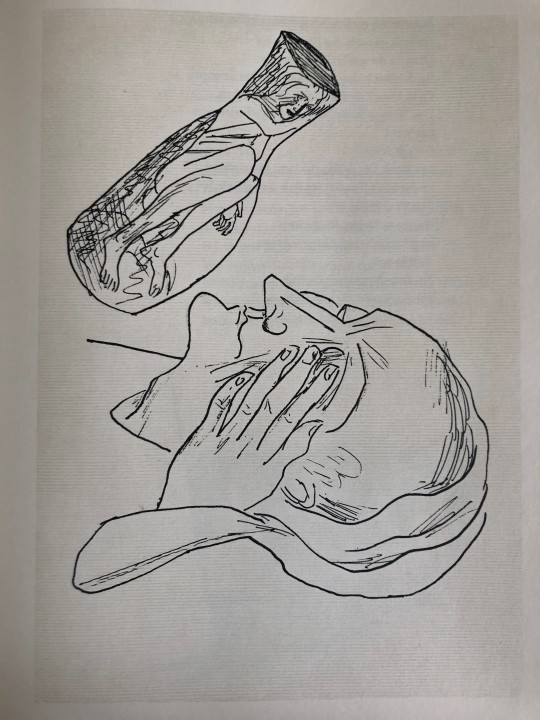

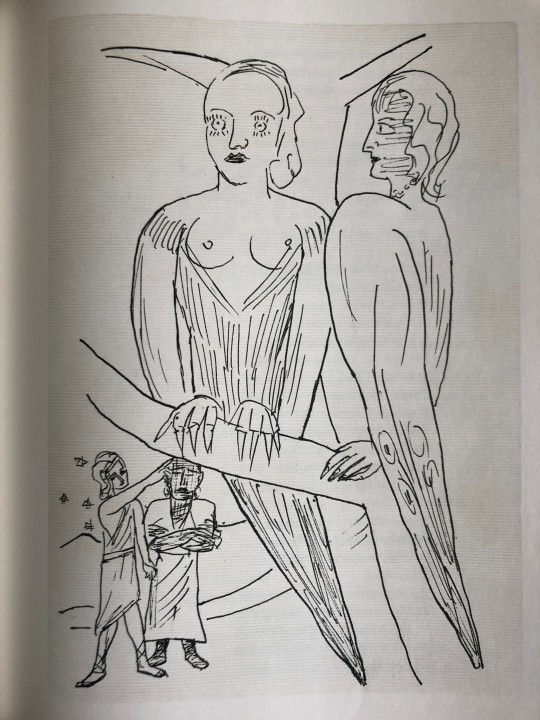
"High should the double-win be appreciated: Becoming mercy and at the same time, bringing joy."

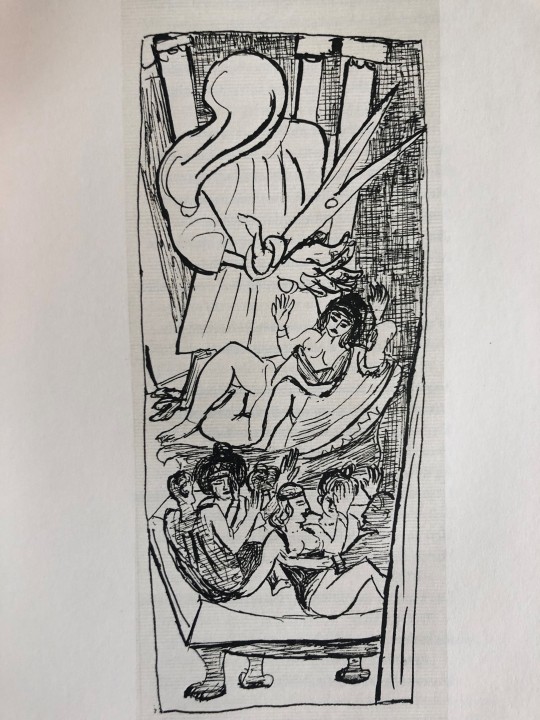
"War, trade and piracy, triune they are, inseparable."
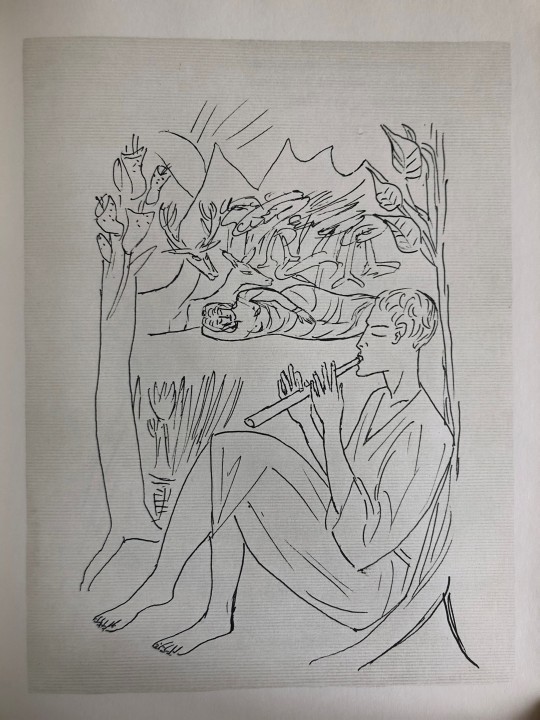

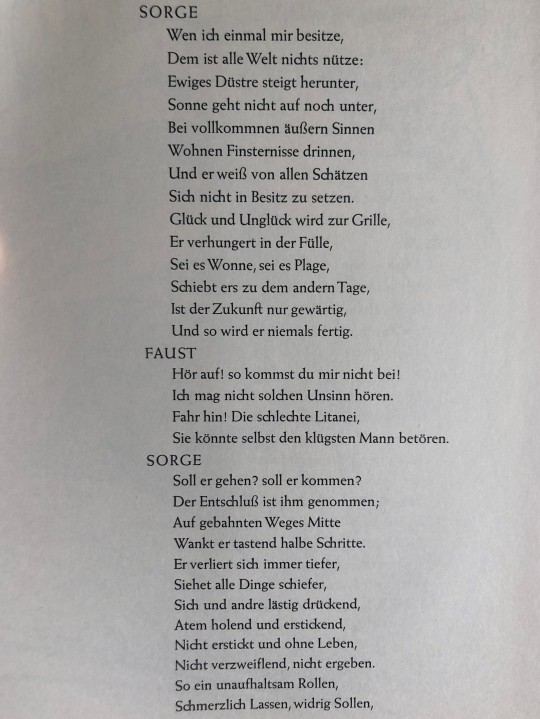
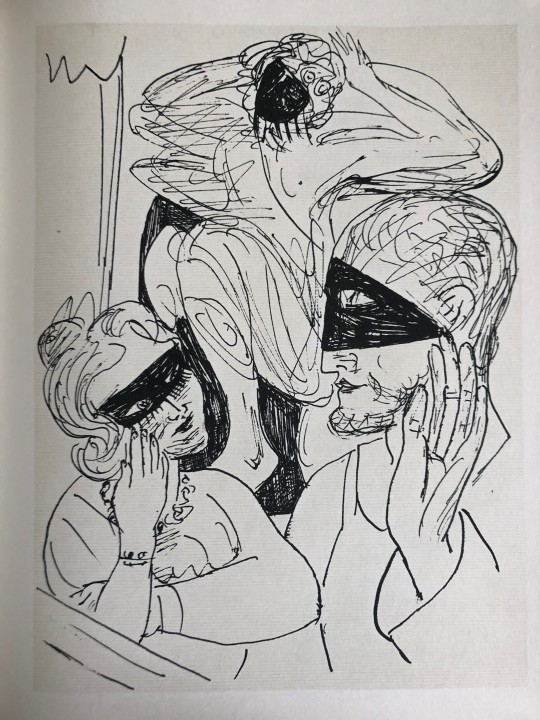
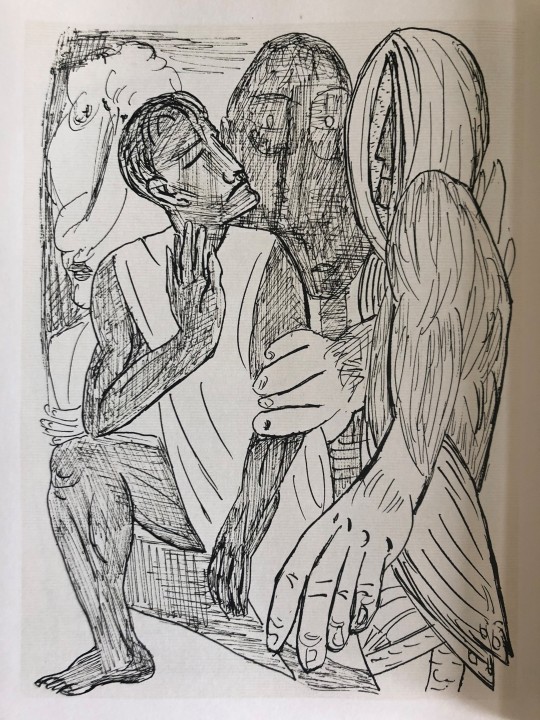

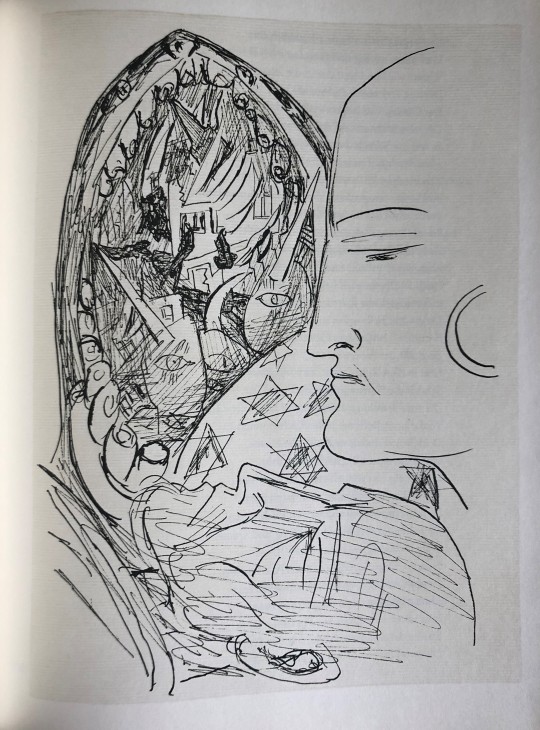
"How earnings and luck are linked togehter , fools never think of that; When they would have the philosopher's stone, the wise lacks the stone."
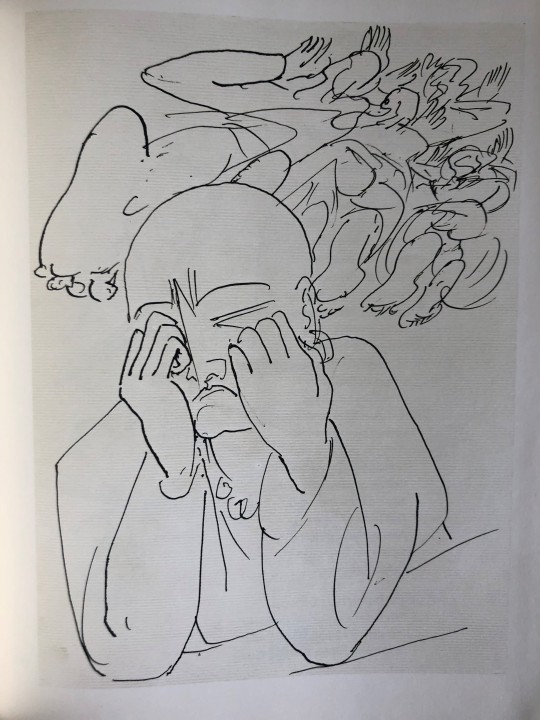

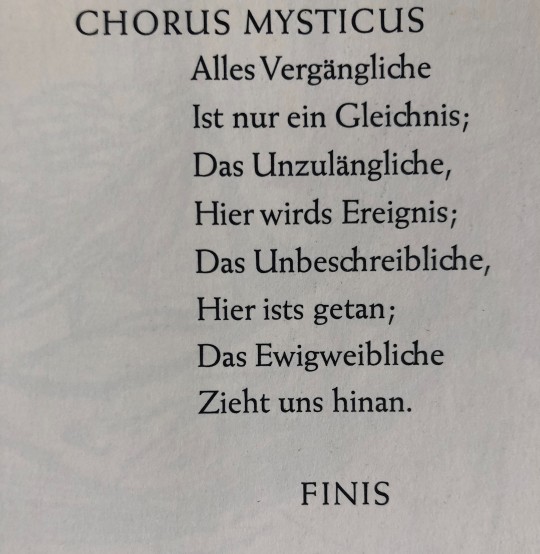
Beckmann is melting words and visions, letters becoming symbols and every drawn line's narrating the story.
It must have been hard circumstances under which he had to work, bombing and insomnia, Weltekel and terrible pain,
alienated by the great writer and poet Goethe:
"State of copious hopelessness- and the relation to the Ur-Alten [Goethe] is opaque as ever."
(Diary-entry, July 1943)
Despite it, Beckmann was able to finish this project, continued to drink his wine and poured out love and sorrow, seriousness and play. Creating the figures in his hand and bringing dynamically to life.
As in the poetry the world is vividly described, Beckmann recreated the Faust Legend, letting his countentance shining through and incredibly intensifying the reading experience.
#Faust#Faustliteratur#Johann Wolfgang von Goethe#Goethe#Faust II#literature#book#illustrated classic#tragedy#German cultural heritage#Beckmann#Max Beckmann#art in exile#exile art#exile#Neue Sachlichkeit#book illustration#book cover#bookworm#world literature#bücherwurm#Mephistopheles#1943#pen drawings#drawings
2 notes
·
View notes
Text
Prost to Authentic Oktoberfest Celebrations: From Pretzels to Polkas!
Guten Tag! As the leaves turn golden and the air fills with a crisp breeze, the spirit of Oktoberfest comes alive once again. A celebration rooted in tradition, Oktoberfest is a time to embrace your German heritage and savor the flavors, music, and merriment that define this iconic festivity. Whether you’re raising a stein with friends or recreating the charm of Germany in your own home, here’s…

View On WordPress
#authentic Oktoberfest#Bavarian decorations#German culture#German heritage#Lebkuchen hearts#Oktoberfest attire#Oktoberfest celebrations#pretzel recipe#sauerkraut recipe#traditional recipes
0 notes
Text
ja ich bin nicht Deutsch, ich bin Amerikanerin aber
My ancestry is German so. I feel a connection to it. Also dad learned German in school (a little) and i learned some when i was a kid. He told me how his dad felt some persecution during World War I for being German. Still they kept ties to German heritage to the point they wanted dad to learn German in school. Now i am learning it!
#I would like to know more German culture as well#Beyond our wisconsin American German culture#There are a lot of Germans here#Heritage#Moved to wis for some reason#In 1800s#German heritage influenced food here#And this town has LARGE oktoberfest.#I am part Irish and British as well perhaps french#But more German#Both last names German#Going back and back#Moms mom's-- Klee#Her mom's-- finkenbinder#She is evelyn#We also have a legend grandpa s related to Francis drake#His gm Julia drake#He has some British and Irish#Otherwise mostly german#My dad's family from Alsace lorraine...
1 note
·
View note
Photo
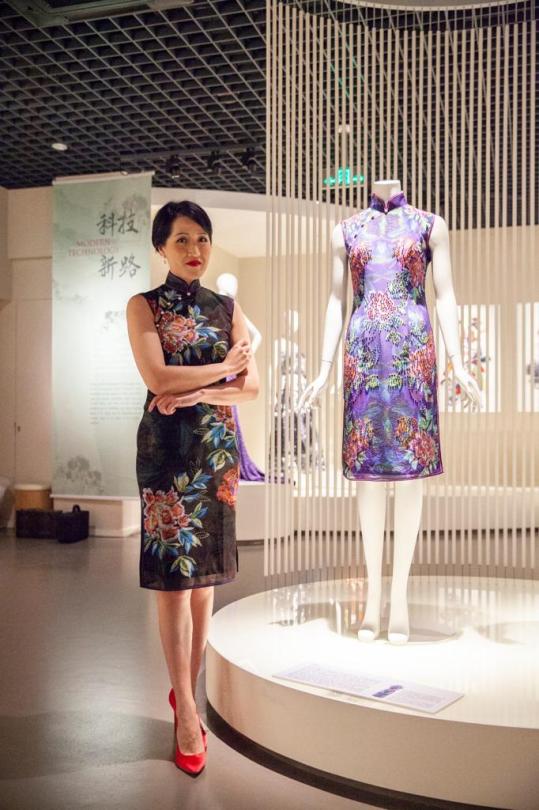





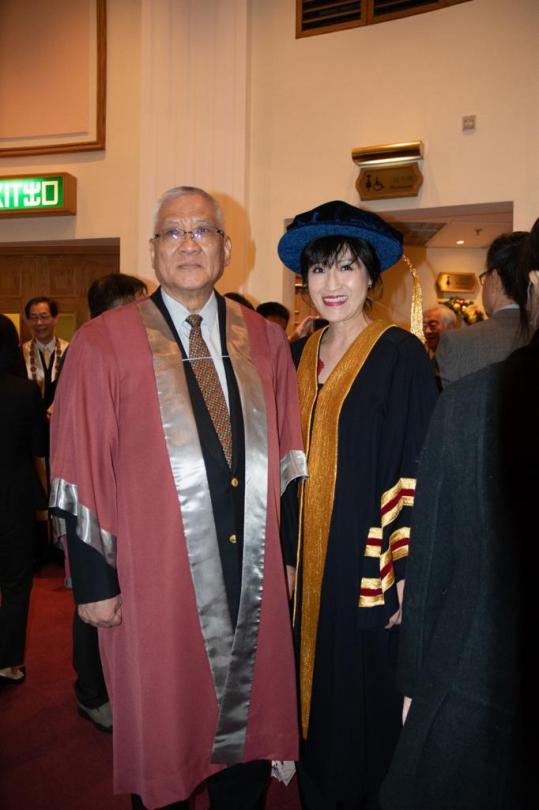


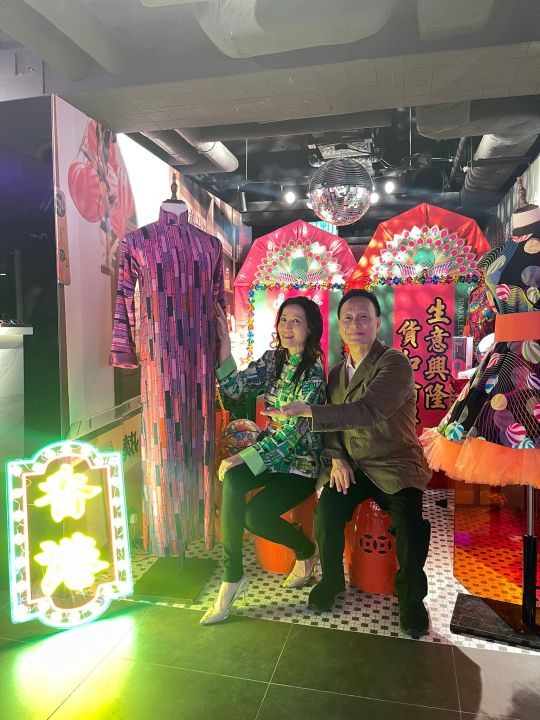
The Young Woman Leader In Hong Kong Karen Chan Picks The Cultural Battle Of Preserving Cheongsam: “I Don’t Want Cheongsam To Become Another Collective Memory Of Our Generation!”
German Pool has been a famous brand of electrical appliances in Hong Kong since 1982. It is a family business and the prominent figure is Karen Chan(陳嘉賢)—not only for her contribution to the industry of Hong Kong, but also for her cultural offerings in the form of ‘Cheongsam’(長衫) or ‘Qipao’(旗袍).
Cheongsam is a Chinese dress worn by women and men which takes inspiration from the ethnic clothing of the Manchu people in the North. For woman, cheongsam is most often seen as a long, figure-fitting and one-piece garment with a standing collar, an asymmetric left-over-right opening and two side slits, and embellished with Chinese frog fasteners on the lapel and collar. It was developed in the Ching Dynasty and evolved in shapes and design over years.
Karen said, “I love cheongsam in its traditional form but want to make it respond to the modern life too.” She runs a cultural rather than fashion business ‘Sparkle’ which designs, makes and promotes cheongsam.
Karen studied in Sacred Heart Canossian College. She went to University of Washington for her first degree and New York University for her second degree. In 2000, she returned to Hong Kong to work but soon moved to Vancouver and got hitched. In 2006, she came back to Hong Kong with a family to assist in the family business. In 2009, Karen obtained the master’s degree in Marketing from Chinese University of Hong Kong. Her son is 12 years old now. Karen is tall, slim and represents 2 things, character and competence.
She, as usual, had an unweary smile on her face, “Time flies and I am making up for lost time. I have too many things that I should do.” I stared at her, “Karen, you work too hard! Apart from being a businesswoman and taking care of a family, you sit on government consultation committees and governing boards of universities.” Her eyes were twinkling with mirth, “Don’t worry. The great consolation that I have is making beautiful cheongsam for others and myself.”
She said, “Our past is never dead to us, until we have brushed it aside. I respect traditions especially the old arts and crafts of Hong Kong. Tradition does embody valuable accumulated knowledge, and provide a sense of belonging to our great city. But, I think tradition is not a way of saying ‘we must do it this way’. If you want to keep something old, you will have to let it somehow grow younger and newer. Great cultures in Hong Kong like dim sum, architectures and kung fu are always a fantastic combination of old and new. I really don’t want cheongsam to be called another ‘collective memory’ after it is gone forever.”
I asked, “Why is cheongsam culture uniquely Hong Kong?” She patted her head, “During the 1910s to 1920s, cheongsam commanded her cultural prosperity in 2 major cities, namely Shanghai and Hong Kong because people there were rich and fashionable. It was important for ladies to look trendy and classy. Shanghai was later under communist rule. Fashion basically disappeared and the focus was on the communist cadre look. Clothing available was mass-produced and functional, leaving little room for individuality or femininity. Hong Kong remained a free city. Cheongsam continued to flourish here and it never died out. We had cheongsam of uniquely different designs, styles and materials in the golden days of 1950s to 1970s. Almost all women wore cheongsam. It is sad that since the 60s, western clothes were seen by women as a sign of modernity and liberation. Fewer and fewer women wore cheongsam. Luckily, we still got a small circle of ladies who loved cheongsam and it has become a specialized type of clothing that fits only a niche market. My mission now is to keep cheongsam alive and through my public education effort, I want to tell people in Hong Kong that removing our misconceptions of and prejudice against cheongsam is an important cause!”
I put my final question to her, “What is the future gauntlet that you have to take up?” She sighed, “Wow! Too many challenges ahead. There are 4. I want to prove that even westerners, given their bigger body size, can wear cheongsam and look pretty. Then, I wish to ensure that the knowledge and skills associated with this traditional artisanry can be passed onto the future generations so that the art will continue to survive. Thirdly, I want to be a respectable fashion designer who can create cheongsam as a piece of up-to-date beauty. My last wish is humble: I would be able to keep my cheongsam business from falling. It is expensive to make a cheongsam due to many factors, for example, that the best cheongsam must be handmade and the fabric must be 100% silk. Cheongsam market is however small and a lot of customers are experts in cheongsam. I do hope I can meet their expectations.”
Karen Chan aspires to be a defender of Hong Kong’s cultural heritage. Hong Kong is no more just an international financial centre in Asia. Our civilization is already a rich pool of brilliant beliefs, customs and knowhows accumulated in the course of 19th to 22nd Century.
The problem of modern life is the claim that, for the sake of progress, we have to lose local traditions at a faster pace than that of preserving, not to mention the extra loss accelerated by forces such as globalization and national assimilation. A woman’s greatest asset is her beauty and cheongsam is the wonderful dress that helps a woman capitalize on her physical and emotional beauty.
MLee
Chinese Version 中文版: https://www.patreon.com/posts/chen-jia-xian-de-76769559?utm_medium=clipboard_copy&utm_source=copyLink&utm_campaign=postshare_creator&utm_content=join_link
Sparkle Collection Fashion Show https://youtu.be/1SqDDu_MJZM Acknowledgement – Sparkle Collection
Sparkle Collection Cheongsam 2023 https://youtu.be/RSQGXX-R-7E Acknowledgement – Sparkle Collection
Cheongsam Etiquette https://youtu.be/dx5d2hQKiWs Acknowledgement – Sparkle Collection
Maggie Cheung’s Cheongsam in Movie《In the Mood for Love》 https://youtu.be/KloZiML4jQ8 Acknowledgement – San Shi Ma
Karen Chan Interview https://youtu.be/SP5LuLssrlQ Acknowledgement - hkfederation
#Manchu#Qipao#Artisanry#German Pool#Ching Dynasty#Sacred Heart Canossian College#University of Washington#New York University#Frog Fastener#Cultural Heritage
0 notes
Note
So this is a weird ask but I figured an Actual Welsh Person would be the person to go to, and you've been pretty gung-ho about the language thing. So I hope I'm not bothering you with this.
Is there a cultural consensus on foreigners learning Welsh? I'm American and I don't have a single shred of Welsh ancestry. My family is historically German, and we've been here since the English Colony days, so it honestly seems really weird even to try to claim some tie to German heritage.
Anyway, my point is, I have absolutely zero legitimate claim to the Welsh language. I don't plan to travel to Wales in the foreseeable future. I have no reason to learn Welsh except that it sounds pretty and I enjoy a challenge.
Putting aside the issue of "lmao it's gonna be stupid difficult to learn an endangered language if you don't have anyone to speak it with" (I have a loose plan for dealing with that, and the experience of learning two languages to "can read most novels without needing the dictionary" level without anyone to speak them with in person already) entirely, do you reckon it's okay for me to study Welsh? I know Americans are really, really bad about just kinda assuming the whole world belongs to us, and I'm trying not to do that here. Especially because Welsh IS endangered.
I imagine your average Welsh person probably doesn't care what some random American does. But like, for people who care about the language...Would it be considered disrespectful or overstepping for me to study it? I don't expect you to speak for the entire country, of course, but I respect your opinion and I feel like you'd have a grasp on what the general feeling towards a foreigner like me might be.
Thanks for your time.
I honestly, truly, do not understand how the discussion around cultural appropriation has been twisted in the cultural zeitgeist to such an extent that people now feel anxiety about learning other languages.
This is not a personal attack on you, Anon - the gods only know that you clearly care and want to do the right thing, and that's beautiful and wonderful and also I will come back to extolling your personal virtues at the end of this post, so stay tuned. But I do want to take a moment here to talk about the broader issue at play, which I have seen echoed multiple times elsewhere, because fuck me what are we doing to ourselves.
Learn. Languages.
That is what languages are for! To be used for communication. If you don't learn languages, you are forcing everyone else to use yours. How have we somehow, as a culture, twisted that into being the less selfish option? How have we done that? I posted my favourite Welsh idiom recently, and someone reblogged it and wrote in the tags that they loved the idiom and would start using it, but they would do so in English because their "Welsh pronunciation would make their Welsh grandmother spin in her grave."
What kind of mental gymnastics is that?
How the fuck do you twist it so badly that you think taking a Welsh idiom for your own and exclusively using it in English is less offensive than saying it in Welsh but maybe a bit wrong? I've literally had people proclaim to me that they're learning Welsh on Duolingo but they never speak it because they're too self-conscious, and they tell me this not to highlight a massive flaw in themselves that they need to work on, but as though I'm supposed to pat them on the head and thank them for... still making me speak English to them.
There was that post where a Deaf blogger received an anonymous ask saying learning sign language is cultural appropriation, as though Deaf people haven't been calling for Sign to be taught in schools. As though a Deaf person being entirely isolated in everyday hearing society unless they have an interpreter with them is less offensive than a hearing person being able to use BSL.
Like, these are not sacred or religious languages. The purpose of Welsh or BSL or what have you is not to perform the Eleusinian mysteries. It's a living everyday language, same as English -
Except it's not the same as English. As Anon here so rightly points out, Welsh is endangered. That means we are desperate for people to learn it. That's how it will survive. That's how we reversed it from 'dying language' to 'living language', in fact - we managed to get lots of people to learn it. You know what is a threat, though? People not learning it because, like poor Anon here, they've been somehow convinced by Western society that you're only allowed to learn languages if you personally have a historic or cultural connection to them that you can prove via six forms of ID and a letter of recommendation from a druid. Or people never using it because they're too embarrassed to try and risk losing face by getting it wrong, or maybe sounding a bit silly, and thus forcing us to use English anyway. Those are threats.
Anon. Listen to me, feel the sincerity of my words: we adore you. We adore you. You cannot imagine how appreciated it is when someone learns Welsh. You cannot imagine how touched we are that you wanted to, that you tried, that you respected us enough and considered us valid enough that you made the effort. Our closest neighbours are the very people who are still trying to stamp out Welsh to this very day. Do you know the number 1 reaction I get, by a country mile, when I tell English people that I speak Welsh? It's some variant on a scoff, and the sentiment "Why? What's the point? Bit useless, isn't it?"
By a country mile. That's the reaction I expect, and brace for, and is overwhelmingly what I get.
So when someone who isn't Welsh actually chooses to learn Welsh?
Imagine what that feels like! To go from not-even-hidden disgust, from outright mockery and often active suppression campaigns, to a foreigner earnestly telling me that they love and respect my language so much they're trying to learn it. Imagine how that feels.
Please learn Welsh. Please learn it. We will love you for it. We will build you a statue. We will bake little Welshcakes with your face on in icing sugar. We will write you poems in complex rhyme. We'll name an Eisteddfod prize after you. We'll name at least, like, three sheep after you. Thank you, thank you so much for even wanting to learn. You're a delight and a marvel and a wonder. Your hair looks great today, as it does all days. You're a strong, independent human being of immense wisdom and compassion. If this were a Welsh myth you'd be a wise salmon the heroes came to for advice. What a fantastic human.
The welcome awaits if you choose to learn
9K notes
·
View notes